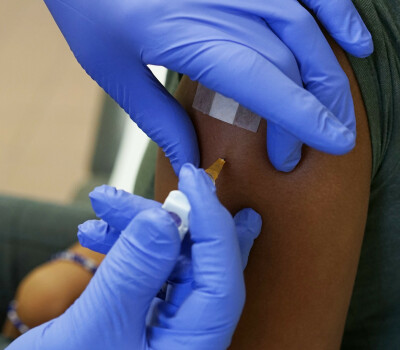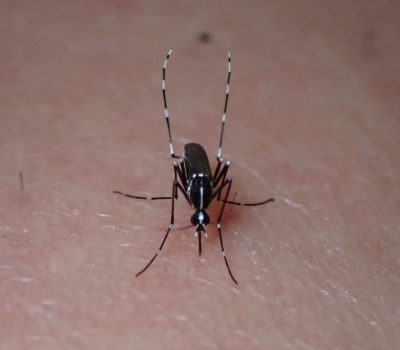PrEP is promising, but not reaching everyone yet

In the large-scale PROMISE study, the Institute of Tropical Medicine (ITM) in Antwerp and the University of Antwerp (UAntwerp) investigated how PrEP care could be optimised for maximum impact on the HIV epidemic in Belgium. Interviews and surveys with men who have sex with men (MSM), persons with a migrant background, sex workers and health care providers revealed a high need for low-threshold and more differentiated care.
The number of HIV diagnoses in Belgium has been declining for several years. However, researchers have observed a slower decline and a higher proportion of HIV infections among MSM (men who have sex with men) with a migrant background. This means the need for prevention strategies in the fight against HIV remains.
A highly effective tool for this purpose is PrEP (Pre-Exposure Prophylaxis), the HIV prevention pill. Despite its effectiveness, PrEP has not yet reached everyone who may benefit from it. The Institute of Tropical Medicine (ITM) in Antwerp and the University of Antwerp (UAntwerp) investigated how PrEP can be optimally used in Belgium.
Homogeneous group of users
The number of PrEP users in Belgium has been steadily increasing, surpassing 5,000 individuals. However, the current user base is predominantly comprised of MSM (men who have sex with men) with Belgian nationality, accounting for approximately 99% of users. Unfortunately, there are certain barriers that prevent specific groups within the MSM community from accessing PrEP. For instance, those with limited knowledge about PrEP, individuals facing mental health challenges, or those experiencing financial difficulties are less likely to benefit from this HIV prevention pill. Moreover, PrEP remains less recognised among MSM who have lower levels of education, reside outside major cities, are less open about their sexuality, or do not identify as homosexual.
Thijs Reyniers, sociologist at ITM, emphasises how PrEP availability has a positive impact on the quality of care provided by healthcare providers and the satisfaction expressed by users. Building upon this success, the focus must now shift towards expanding PrEP utilisation and implementing additional prevention strategies, with a particular emphasis on reaching vulnerable groups. Reyniers highlights the significance of the insights gained from the PROMISE study, which hold relevance not only for current PrEP formulations but also for emerging options like long-acting injections. “As pioneers in Belgium's PrEP initiatives, efforts are being directed towards reducing HIV infections while staying at the forefront of advancements in HIV prevention”, he adds.
The research team discovered that the decision to use PrEP is influenced by factors such as the fear of negative reactions and the prevalence of PrEP users within one's social network. Their study involved engaging with individuals from both communities where PrEP usage is widespread and those where it is uncommon. This investigation highlighted the significant impact of social norms and networks on the choice to adopt PrEP.
Multiple barriers
Individuals with a migrant background are disproportionately represented in the statistics of new HIV diagnoses, both within the MSM and heterosexual populations. However, they are underrepresented among PrEP users. The primary barrier stems from structural challenges. People lacking residence documents, and therefore not affiliated to a Belgian health insurance fund, are unable to access PrEP. This issue particularly affects male and transgender sex workers, who are highly vulnerable to HIV. Additionally, significant barriers exist within specialised HIV reference centers (HRC), and socio-economic vulnerabilities, including financial constraints and unstable living conditions. This makes the problem worse. The taboo surrounding HIV and sexuality, as well as limited access to information about PrEP, also contribute to this imbalance.
Veerle Buffel, sociologist at UAntwerp sees the gap between MSM eligible for PrEP and those who use PrEP decreasing significantly. "But we need to continue our efforts for those who have a high vulnerability to HIV but do not yet find their way to PrEP", she says.
Differentiated care
The rising number of PrEP users is placing an increased workload on the 12 HIV reference centers (HRC) in our country. To better address the needs of PrEP users and reduce barriers for vulnerable groups, it is crucial to introduce flexibility in the care model. The HRCs recommend reducing the number of consultations for stable users, redistributing routine care responsibilities from doctors to nurses, and enhancing collaboration between HRCs, general practitioners (GPs), and organisations that cater to the specific target groups. To achieve these goals and ensure high-quality care, the implementation of a legal framework and provision of training for GPs are necessary.
"Last year, we successfully launched a new inter-federal HIV plan in collaboration with all health ministers, aiming to reduce the number of HIV infections in our country," states Frank Vandenbroucke, Minister of Social Affairs and Public Health. "PrEP plays a crucial role within this plan. We have already implemented more lenient conditions for prescribing PrEP within the HIV reference centers (HRCs). Additionally, we are currently working on regulations to enable sex workers to access PrEP through psycho-social centres tailored to their specific needs. The PROMISE study conducted by ITM will provide valuable insights into identifying any remaining barriers. In light of this study, I will request the HIV Monitoring Committee to explore further actions that can be taken to ensure a significant decline, rather than a slow decline, in new HIV infections."
"The PROMISE study provides invaluable insights that can guide us in identifying the most effective prevention strategies to combat the HIV epidemic. Flanders is committed to implementing the recommendations that fall within our jurisdiction. This symposium has clearly highlighted the target groups where we need to enhance communication and raise awareness about PrEP usage. These findings will inform the development of a well-informed policy. However, it is important not to solely focus on a medical approach based on the results of the PROMISE study. We must also consider the combination of knowledge, motivation, behavior, and medication. PrEP is not merely a pill; it is a means for individuals to care for themselves and their partners," emphasises Hilde Crevits, Flemish Minister for Welfare, Public Health, and Family.
PROMISE symposium
On 9 June, ITM organised a symposium on the results of the PROMISE study. More than 150 healthcare professionals, policymakers and researchers participated, formulated recommendations and debated the future of PrEP in Belgium. Flemish Minister of Welfare, Public Health and Family Hilde Crevits explained the Flemish policy in a video message, Tina Van Havere, advisor at the Cabinet of Minister of Public Health Frank Vandenbroucke explained the federal policy. The PROMISE project came about with the support of the Fund for Scientific Research (FWO).
Spread the word! Share this story on









